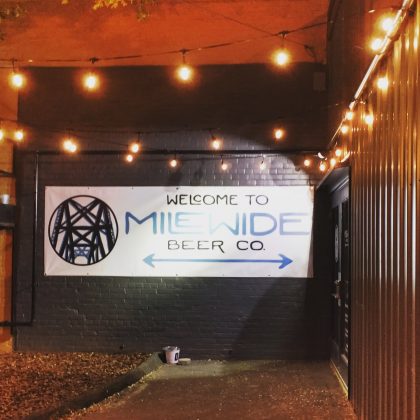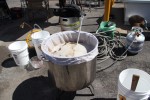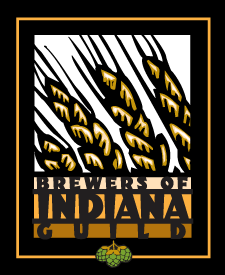What was that?
How many breweries are located in the state of Indiana?
Only your friendly statewide trade organization knows for sure, although with the situation changing so quickly from week to week, the Brewers of Indiana Guild (BIG) probably isn’t capable of a completely accurate count, either.
The best guesstimate bandied about during BIG’s annual meeting in April was about 63 operating breweries, with as many as a dozen more in the planning stages.
(Full disclosure: I am a director on the board of the Brewers of Indiana Guild. However, my thoughts are strictly my own, and do not reflect official guild policy)
Clearly, Hoosier brewing has come a very long way since John Hill planted a family tree of sorts by opening the Broad Ripple Brewpub in Indianapolis in 1990. NABC began brewing in 2002, and yet now we’re among the older breweries continuously operating in the state during the past quarter century’s overdue revival.
It is likely that by year’s end, there’ll be working breweries in both Corydon (Point Blank) and Jeffersonville (Red Yeti). There are four breweries in Columbus and outlying areas in Bartholomew County, three in Evansville, two in Lafayette and one in tiny Needmore. BIG represents them all, because that’s what guilds are constituted to do.
As American craft brewing in the contemporary era has expanded, it has become common for craft breweries to align in professional trade groupings precisely like BIG, as delineated by state boundaries. The reason is simple: In the United States, individual states retain the bulk of the responsibility for regulating beer, brewing and breweries. While the entity known as the Brewers Association exists to coordinate the interests of craft breweries nationwide, in the state of Indiana it’s all about BIG, as described at the guild’s website.
The Brewers of Indiana Guild (B.I.G.) was organized to provide a unifying voice for the microbrewers and brewpubs of Indiana. Its goal is to promote public awareness and appreciation for the quality and variety of beer produced in Indiana. The Guild represents every brewery in Indiana.
Through economic development, academic research, and educational programs, the Guild brings benefits to a much larger community than just its members. B.I.G. also works closely with local farmers, grocers, and restaurants to promote locally grown produce, meats, dairy and other products, as well as with the arts community to showcase Indiana’s extremely talented performing artists.
The Brewers Guild of Indiana is a driving force behind the “Drink Indiana” public awareness campaign which strives to support the local breweries and encourage patronage of local brew pubs. And remember, craft beer is a lot like love; it’s a gift of life to be enjoyed responsibly–abuse it and lose it. If you drink, please don’t drive.
You may be wondering why I’m taking great pains to establish the intimate connection between a state, the state’s laws, and trade groups operating within that state.
It has to do with those pesky state boundaries. When it comes to craft beer, the prevailing reality is that while Indiana wholesalers and retailers are in the business of vending beer emanating from locales scattered throughout the world (subject, of course, to all manner of governmental regulation at every point of contact), a brewery located within the boundaries of the state of Indiana is an Indiana brewery, and as a functioning entity, it answers primarily to the state.
Yes, the production of beverage alcohol is controlled and taxed by the Federal government at the point of origin, but most other aspects of an Indiana brewery’s daily existence pertain to structures unique to Indiana.
Accordingly, just about every activity the Brewers of Indiana Guild undertakes is Indiana-centric. How could it be otherwise? BIG employs a legislative liaison (a lobbyist, if you will), and he works in the state capital of Indianapolis, spending virtually all of his time in and around Indiana state government, because that’s the primary point of reference for Indiana breweries.
In fact, it would be downright bizarre to suggest that BIG’s lobbyist might choose to spend billable hours at legislative sessions in Michigan, Ohio, Illinois or Kentucky. Conversely, Indiana legislators and officials with whom BIG’s lobbyist comes into contact seldom ask him to explain the impact of legislation on taxpayers in surrounding states; soft yet considerable PAC monies from Orange County, California aside, Indiana legislators are elected by Indiana residents.
The Indiana guild asks Indiana legislators to enact legislation that must make sense to Indiana voters. It’s Indiana money. It’s an overwhelmingly Indiana-centric mandate. If it has to do with BIG, it needs to be about Indiana-brewed beer, otherwise the point is being missed.
And yet, miss it we sometimes do.
Next time, in part two, I’ll explain what we miss, as well as propose corrective measures.






